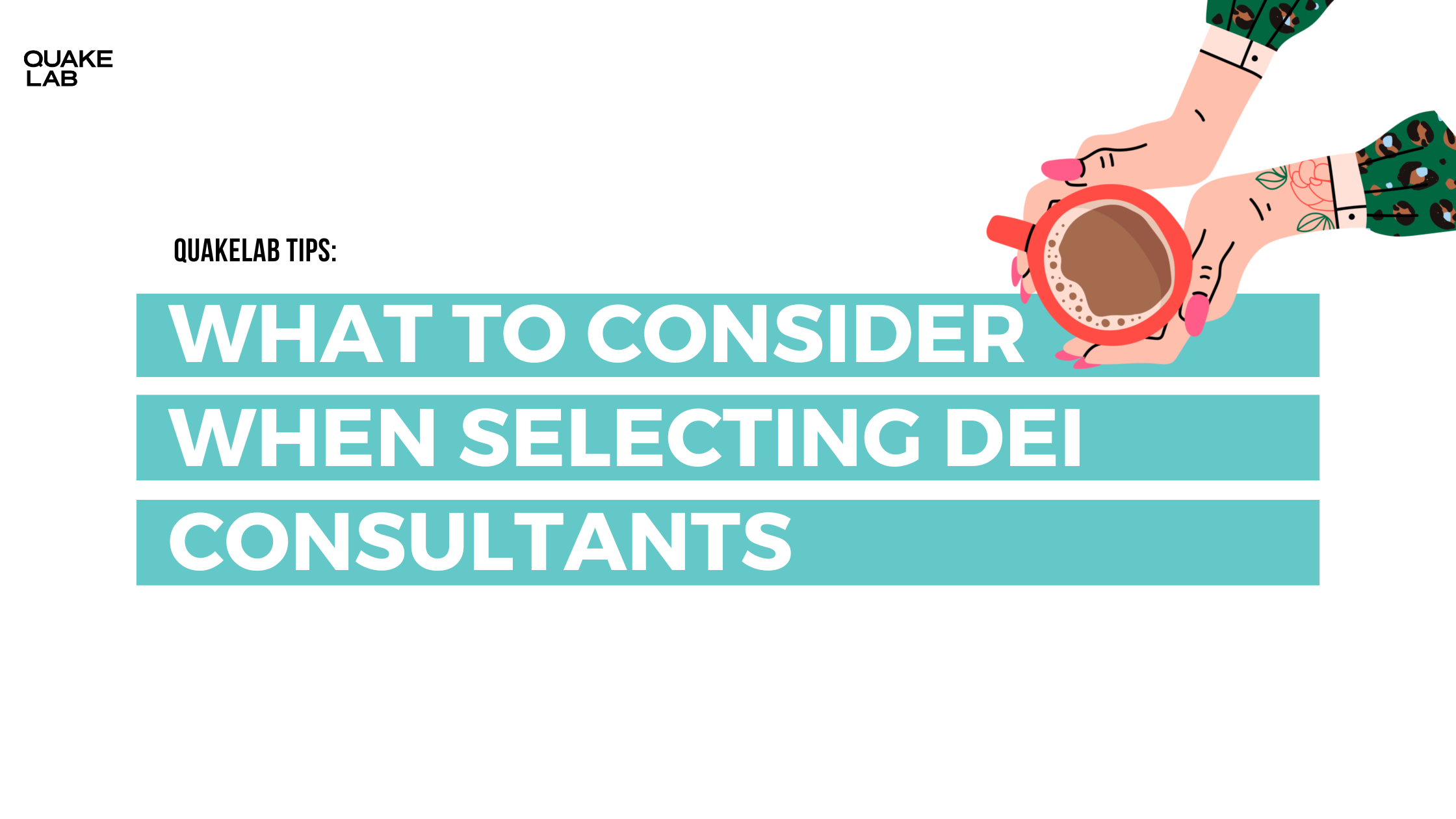However, we’re going back to the first principle here - doing the same thing hasn’t yielded very good results in community consultations. So maybe it’s actually costing us more money than it should, and it’s time to try something different.
Read MoreIn the last post, we talked about how municipalities tend to default to the same mechanisms for public consultations - online call outs for engagement which results in the same people showing up again and again and again. We identified some of the barriers that other community members may face. In this post, we talk about what happens when attempts are made to expand the consultation reach and how this can perpetuate harm.
Read MoreWe’re not here to kill the vibe, but when done without an equity lens, public consultations or engagements run by government are at best, perfunctory and ineffectual and at worse, perpetuate harm. How? We’ll explain.
Read MoreCreating strong naming principles, policies and frameworks that are embedded in equity are an important step to reducing the likelihood of future renaming. Places reflect the lives of the ever changing communities around them, and the changing nature of the world and celebrate everyone, not just a few.
Read MoreWe are rapidly moving towards a future where the ability to assess the outputs and process of your work, understand who it is serving, who it is disenfranchising, and how to course correct - will no longer be a nice to have niche, but a necessity. At QuakeLab, we call this equity as a technical skill.
Read MoreMuch like science, technology, math, and STEM in general, finance and accounting has often been positioned as an industry and discipline that exists in a vacuum untouched, unobstructed and unaffected by power, oppression and inequity. The going argument is that this field sits on a mathematical foundation that cannot be biased or inequitable. But if you’ve been with us a while, you know that inequity doesn’t respect our organizational boundaries and more importantly, our workplaces often (if not always), reflect the inequity of the world.
Read MoreIn an effort to inject workplaces with the kind of equitable systems that we at QuakeLab champion, those who are doing the work have become scared and dismissive of the hard things that are normal and ok in the workplace. This does not mean that we rid ourselves of the critical analysis of our workplaces that ensures that even when we are doing the hard things, they are done equitably. Rather it means that we must be solid enough in our efforts for justice and equity to understand that there is a difference.
Read MoreIn this blog, we’ll be walking you through what to look for before diving into DEI work, where we recommend jumping in enthusiastically, and when to seriously consider being deeply cautious whether or not you go forward.
Read MoreUnfortunately, if your DEI approach has been focused on diversification (recruitment), economic instability and hiring freezes means you’re left with a DEI plan that's all bark no bite.
But not all is lost, here’s what DEI in a recruitment-light world looks like!
Read MoreAt work, we have many competing priorities, and it can seem like putting a small section of our limited budget towards an annual unconscious bias training can be a small action moving us in the right direction. But we promise, it’s not. The truth is that substantial changes to behavior and biases do not occur because of a mandatory learning session once a year. Change in behavior often requires a lot more commitment to sustained learning than most workplaces can commit to or are equipped to deliver.
Read MoreVery often, we find that professional development budget lines are used as a tool to access funding for DEI training because it is admittedly simpler to explain a three-hour training as professional development than a 9 month equity audit! Obviously, QuakeLab would love you to hop into our email and collaborate with us to do some exciting and innovative equity work, however if you’re at the stage where you’re working on a strong case for broader equity work and looking for movement within your current parameters, this is for you!
Read MoreThere is immense privilege in the ability to close your eyes, put your hands over your ears, and claim: I can’t because I’m scared. While we cower in fear of mis-stepping, the world does not become any better. In fact, one can argue that inaction out of fear is just as dangerous as oppressive action. So lean into the fear, step into this work with humility, prepare to do some research and real work (not just reflecting, listening and learning). You’ll be ok, promise!
Read MoreAt QuakeLab, we believe strongly in the importance of collecting and analyzing disaggregated DEI data when identifying and addressing inequity. But make no mistake, this is a loaded statement that should not be taken lightly. The QuakeLab team has dedicated years to learning, researching, iterating and building our approach to collecting data. This is a never ending process based in data ethics, justice and taking guidance from marginalized communities.
Read MoreObviously we'd love you to work with us, but what we'd love more is for you to work with someone who will create lasting DEI (Diversity, Equity and Inclusion) change and move your organization closer to equity and justice. Here's what to look out for
Read MoreOur interest in DEI or equity strategies has little to do with semantics, and everything to do with what problem you’re trying to solve, how you’ll be solving it and how you’ll measure and track the effectiveness of these solutions.
Read MoreWhen you don’t have really clear ways to evaluate employees, they are left to advocate for themselves without guidelines. This leaves a lot of room for unconscious bias to creep into the performance appraisal and review process. Without clear structures around mobility (upward or lateral), you are leaving attrition to incidences of inequity. This unintentionally drives out talent who may have had the desire to stay, but don’t have access to the proper support.
Read MoreQuakeCare is a new product being offered by QuakeLab that will help organizations build equity into their work in a meaningful, long term and measurable way.
Read MorePart two of our Harm series that focuses on building the mechanisms to respond to harm. This part of the series deals with the mechanisms of reporting, which is one of the most important stage when dealing with harm. This blog post covers the key areas on how to build these mechanics.
Read MoreDespite the abundance of innovation, capital, and creativity in tech, the industry still has a not-so-secret “diversity problem”. After speaking and working with companies in the tech space, we realized that while all of them have the intention of making an impact, many don’t know where to start. We’ve identified 5 of the common misconceptions that are holding the tech industry back from advancing their equity work.
Read MoreYou might be familiar with the term ‘harm’ and perhaps even ‘microaggressions’, but how well do you know these terms in the context of the workplace and the ways that employers need to be held accountable in creating the right definitions of harm and the reporting systems. This is the first in a series on harm to help you better define harm, building the mechanisms for reporting and more.





















